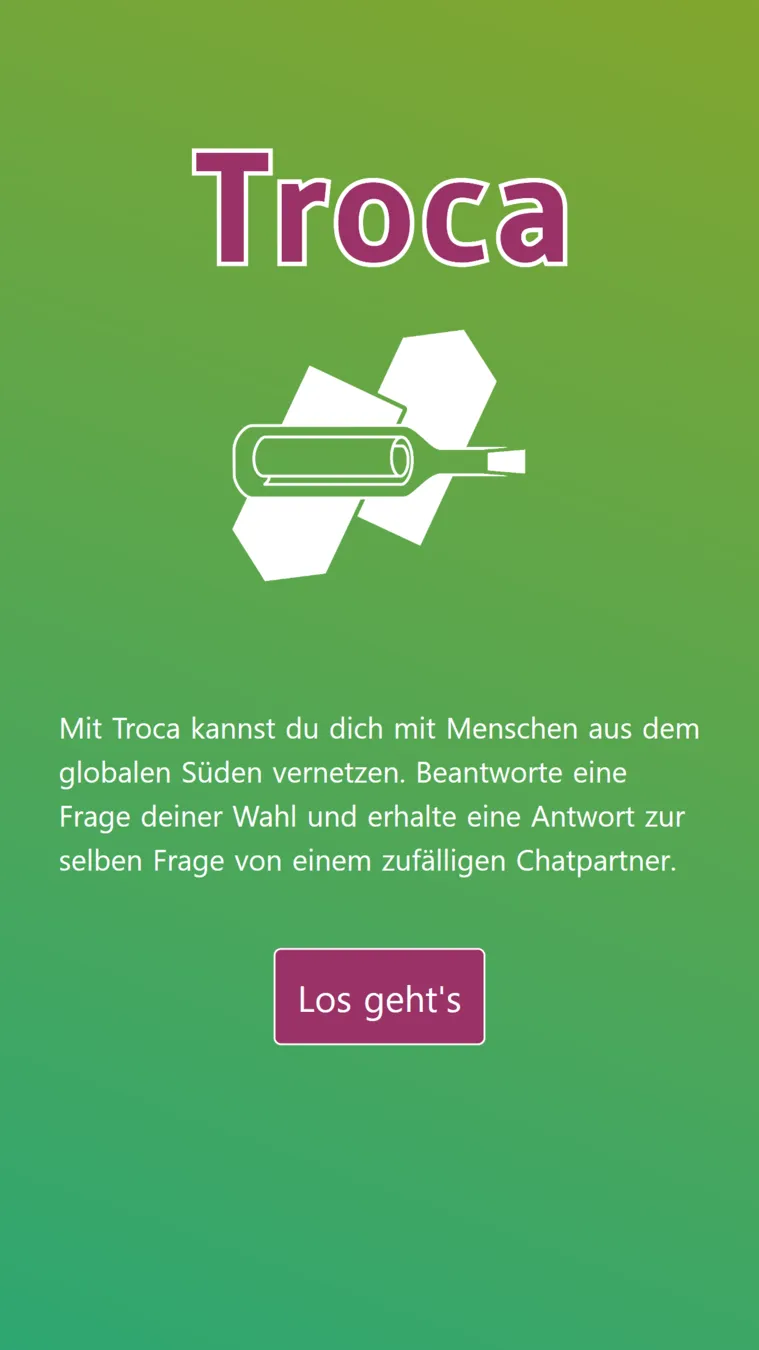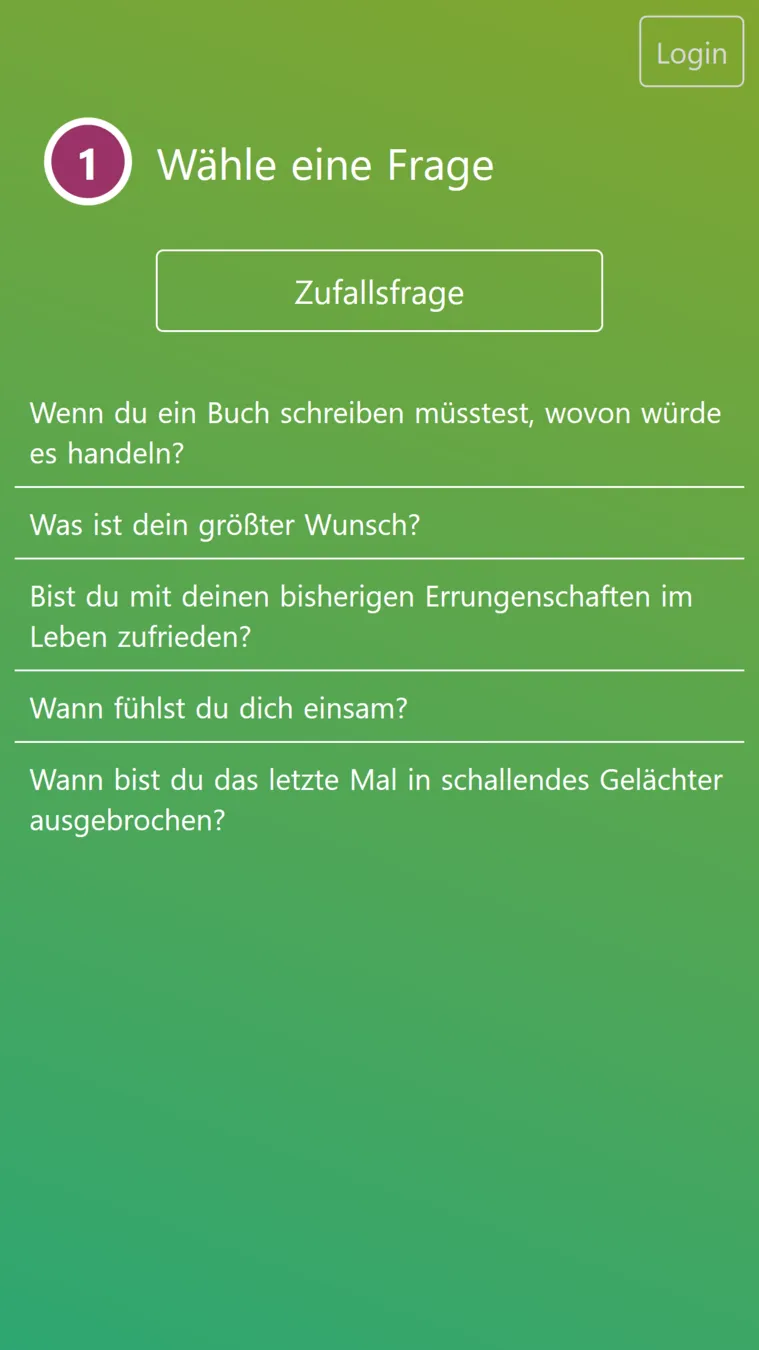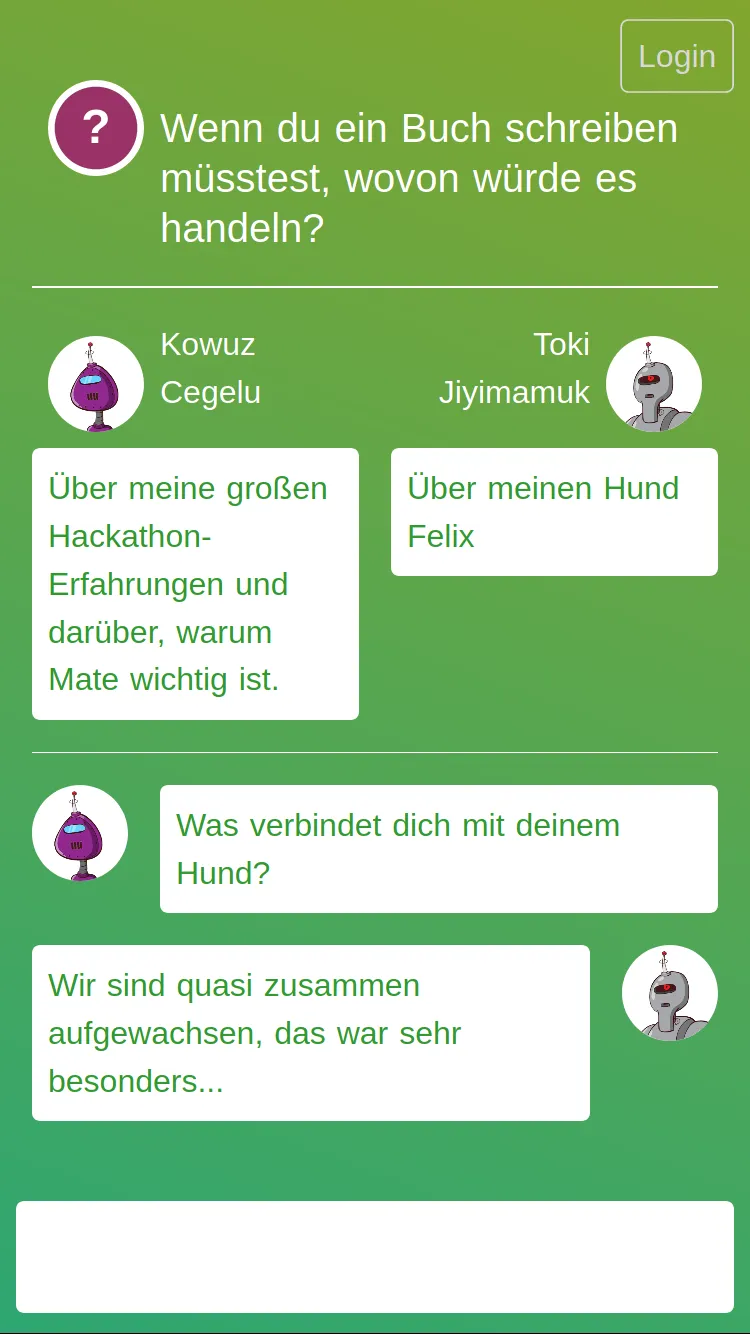hunger.stop()
Published on 2/20/2020⚠️ This post is over a year old. It may no longer reflect the authors current opinion.
Last weekend (14.-15.2.) I participated in hunger.stop() ↗ - the first hackathon of the Welthungerhilfe ↗. There were three challenges which the participants of the hackathon should develop solutions for:
- Donation 5.0: How does donating fit into the digital age, which digital donation possibilities should there be?
- A future without donations. How can we end hunger if no one is donating anymore?
- Get Digital: How can we improve in connecting people in Germany and Welthungerhilfes project countries? How can we tell their stories?
The idea
I decided join a group of students who tried to tackle the third challenge by creating a chat app which randomly connects people from the global north with people from the global south to then discuss a random question in order to get to understand each other better.
When the hacking time started we created a quick and dirty prototype of our chat app in form of hand drawn screens on a flipchart. After discussing our tech stacks we decided to write the websocket backend in Go ↗ and create a mobile-first web app with Nuxt.js ↗.
Time flew from then on and many sugary beverages later we had a fully working prototype and also a name for our app: Troca, which means exchange in portugese.
Troca
Lets get in touch with our MVP! 😀
The landing page explains the basic functionality to the user: The ability to discuss a preselected question with a randomly chosen anonymous person from the other end of the world.

After clicking on the lets go button the user gets to pick from a list of preselected questions.

After answering the selected question the user gets a random user name and robot profile picture assigned and has to wait until another user is found who also answered the same question. If the user was matched with another user the can start discussing!

Pitch
We also had to create a pitch to present our idea to the other participants. You can still have a look at our pitch right here ↗.
Unfortunately we didn’t win the hackathon with our idea. The lucky winners who created a web app which automatically generates metadata for images and text using machine learning which can then be used inside an Airtable ↗ to search for content for the Welthungerhilfes public relations team won a trip to the next international hackathon of the Welthungerhilfe.
Learnings
Nevertheless we had many lessons learned during the hacking sessions. You should for example avoid under any circumstances implementing a custom in memory database on the fly 🙈. Also communication is key, especially when working on the same git repository with five people. A common vision of the product also helps to avoid confusion and non-productivity.
My personal highlight was learning Go for the implementation of the backend, more specifically for implementing the random name generator and random profile image generator. It is fascinating how fast you can get started with Go. One particular good aspect of Go is that there is a default style-guide ↗ which is basically used by everybody. This way every piece of code you take a look at looks the same and grasping the functionality of it gets way easier.
In conclusion it was absolutely worth traveling over 350km to Bonn to get to know the people behind the Welthungerhilfe, fellow hackers and also the city of Bonn. Sign me up for the next edition of the hackathon! 😃
If you’re interested in the project you can take a look at the GPL-licensed source code on GitHub ↗ or read more about hunger.stop() in this local newspaper ↗.